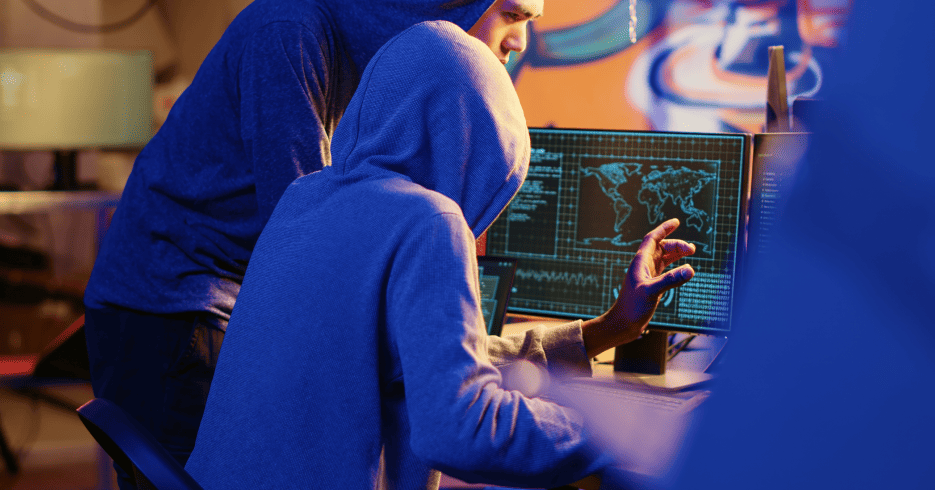In a world where your toaster might be plotting against you (or at least leaking your Wi-Fi password), cybersecurity has never been more important. As we navigate the digital wilderness of 2025, the threats have evolved from obvious Nigerian prince emails to sophisticated AI-powered attacks that can mimic your boss’s writing style with terrifying accuracy.
Cybersecurity in 2025
Let’s start with some sobering facts: The average data breach now costs organisations millions, takes 194 days to detect, and in 88% of cases involves human error. This year has already seen several major incidents, including a mass credential leak affecting 16 billion records. That’s more than twice the world’s population, which means some of us are getting hacked multiple times.
In South Africa specifically, the picture is even more concerning. According to the 2024 Cybersecurity Readiness Index, only 5% of South African companies have achieved a ‘Mature’ level of cybersecurity readiness—a worrying 19% decline from the previous year. Meanwhile, 73% of South African businesses expect a cybersecurity incident to disrupt their operations within the next 12-24 months.
Recent high-profile incidents include a Department of Defence breach resulting in 1.6TB of sensitive data being compromised and a major investment fraud scheme that stole approximately R5.4 billion (USD 300 million) from over 65,000 victims. Overall, cybercrime losses across Africa have exceeded USD 3 billion between 2019 and 2025.
Password Hygiene: Could Be More Important Than Your Actual Hygiene
Your password is like your toothbrush: it should be changed regularly, not shared with others, and not the same one you’ve been using since 2010.
In 2025, a strong password should:
- Be at least 16 characters long
- Include a mix of uppercase, lowercase, numbers, and symbols
- Not be a common word or phrase
- Not be reused across multiple accounts
Better yet, use a password manager to generate and store complex passwords for you.
Multi-Factor Authentication: Because One Lock Is Never Enough
If passwords are your first line of defence, multi-factor authentication (MFA) is your backup. By requiring something you know (a password), something you have (a mobile phone), or something you are (a fingerprint), MFA makes hackers work much harder for much less reward.
Studies show that MFA blocks 99.9% of automated attacks. Yet only about 55% of users take advantage of this simple security measure.
South African organisations face attacks at a rate more than twice the global average—1 in 15 organisations experience attacks weekly, compared to 1 in 31 globally. With over 300 weekly attacks targeting South African entities, implementing MFA should be non-negotiable.
Phishing: Don’t Find Yourself On The Hook
Modern phishing attacks are sophisticated, targeted, and increasingly difficult to spot. They’ve evolved from obvious scams to meticulously crafted deceptions that can fool even the most cautious users.
Red flags to watch for:
- Urgent requests requiring immediate action
- Unexpected attachments or links
- Messages creating a sense of curiosity, fear, or urgency
- Requests for personal information or credentials
- Slight misspellings in email addresses or domain names
Remember: Your bank will never email you from “absa-secure-login-verify@yahoo.com” asking you to “verify your identity due to suspicious activities” by clicking a link.
In South Africa, Business Email Compromise (BEC) now represents 24-25% of all financially motivated attacks. We’re also seeing an alarming increase in digital sextortion incidents and targeted attacks against critical infrastructure, particularly in the energy and finance sectors.
Software Updates: Not Thrilling, But Important
Nobody gets excited about software updates. They’re the digital equivalent of eating your vegetables – not particularly thrilling, but essential for your wellbeing.
Those annoying update notifications? They often contain critical security patches that protect you from known vulnerabilities. Ignoring them is like leaving your front door unlocked.
In 2025, with AI-driven malware becoming increasingly common, keeping your software updated is more crucial than ever. These sophisticated threats can adapt to evade traditional security measures, making every patch and update essential to your digital defence.
DNS Filtering: Your Internet’s Bouncer
Think of DNS filtering as the discerning bouncer for your internet connection. It checks the ID of every website you try to visit and blocks the dodgy ones before they can cause trouble.
This technology prevents you from accidentally accessing malicious websites, phishing sites, and known sources of malware. It’s particularly effective against zero-day threats – new attacks that traditional security measures might miss.
The Human Firewall: Your Most Important Security Feature
Despite all our technological advances, the most critical component of cybersecurity remains the human element. All the sophisticated security tools in the world can’t protect you if you’re willing to hand over your credentials to anyone who asks nicely.
Building a “human firewall” means:
- Staying informed about current threats
- Approaching unexpected messages with healthy scepticism
- Verifying requests through alternative channels when in doubt
- Understanding that security is everyone’s responsibility
In South Africa, where only 31% of companies feel confident in their ability to defend against cyberattacks with their current infrastructure, investing in employee cybersecurity education is essential.
Nowadays, cybersecurity isn’t just an IT issue – it’s a fundamental life skill. By implementing these basic practices, you can significantly reduce your risk of becoming another statistic.
Need help securing your digital life? We’re here to help. Contact Warp Development today for personalised cybersecurity solutions that won’t leave you vulnerable to the next digital disaster.



